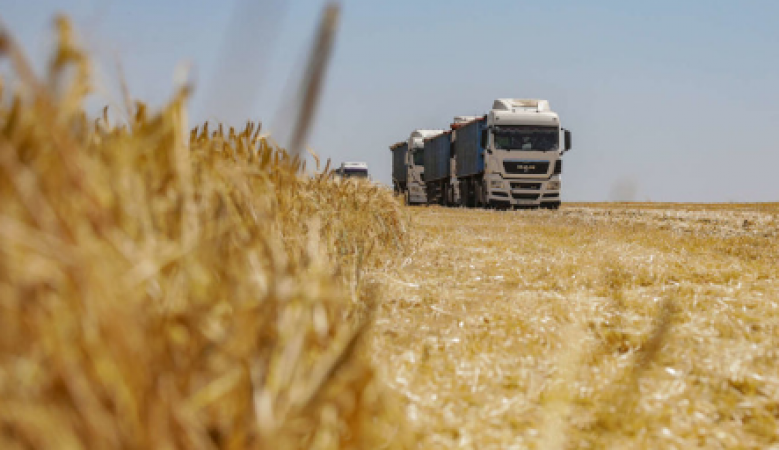
Kiyv: The United Nations stated on Monday that the Ukrainian grain export agreement, which may fall apart in a matter of weeks, is crucial for the millions of people living in the Horn of Africa, some of whom are already starving.
Without Russian approval, the Black Sea Grain Initiative, which aims to ease the global food crisis, will expire at the end of July 17; Moscow is still not happy with the way a parallel agreement is being implemented.
Eastern Africa would "absolutely be hit very, very hard" if the export agreement falls through, according to Dominique Ferretti, senior emergency officer for the UN World Food Programme in the area.
Also Read: NASA's revolution into Airplanes demonstrates sustainability
"A number of nations depend on wheat from Ukraine. And if you didn't have it, food prices would be significantly higher," he told reporters by video link from Nairobi.
Before the agreement, signed in July 2022, allowed for the passage of crucial grain exports, Ukraine's Black Sea ports were blocked by warships during Russia's full-scale invasion of that country in February 2022.
The grain agreement has helped ease the global food shortage brought on by the conflict. Ukraine was one of the top producers in the world.
According to the UN, approximately 32.4 million tonnes have been exported thus far under the agreement. Corn made up slightly more than half of the exports, while wheat made up more than a quarter.
Three times—in November, March, and May—the initial 120-day agreement reached with the UN and Turkiye last July was extended.
The parallel agreement between Moscow and the UN aims to make it easier for Russian food and fertilisers to be exported while also exempting Moscow from Western sanctions.
Also Read: Scientific Illuminations not meant to be in present
Russia, however, continues to insist that this parallel agreement is not being upheld. On June 13, Russia threatened to end the agreement once more, claiming that despite repeated UN assurances, some clauses were still not being upheld.
Ferretti stated that the grain deal with Ukraine "is absolutely critical, not just for East Africa but for all of Africa." According to him, a hunger emergency has trapped millions of people in the Horn of Africa.
Compounding crises like climate change, war, high food prices, and post-Covid economic issues are what are driving the situation.
Earlier this month, a UN-sponsored conference raised $2.4 billion to avert famine in the Horn of Africa, which is suffering from the worst drought in decades as a result of rising global temperatures.
In eastern Africa, which includes Djibouti, Ethiopia, Kenya, Somalia, South Sudan, Sudan, and Uganda, 26 million people experienced severe food insecurity in 2016. There are now almost 60 million people in the world.
The two and a half year long drought was finally ended by the rainy season of March to May, but it was not enough to put an end to the crisis.
According to Ferretti, roughly 43,000 people in South Sudan and 40,350 people in Somalia suffer from severe food insecurity, eating just once or twice a week.
Also Read: Japan's Military Mulls Starlink Adoption of Elon Musk
Even though the UN hasn't officially declared a famine (which depends on a number of other factors), UN officials have stated repeatedly that people in the region are already starving to death.